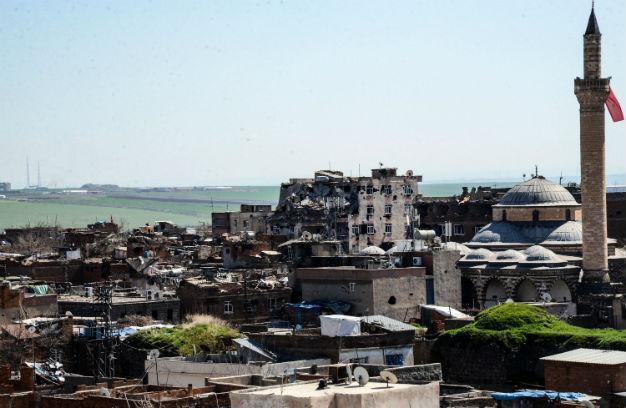Amendment enables construction in protected sites
DİYARBAKIR – Doğan News Agency

AFP photo
A new amendment to a 1999 principle decision to preserve Turkey’s archeological sites has enabled the construction of buildings in protected sites in case of a significant disruption of public order and safety or natural disaster.Turkey’s Natural Heritage Protection High Council held a meeting in the country’s capital on April 7 and agreed to make an amendment to the Principle Decision No.658 on Archeological Sites, Protection and Development Principles to include a provision on public safety.
The amendment makes it possible to construct buildings where necessary, “in cases where public order and safety has been disrupted to stop or suspend daily life or in case of a natural disaster.”
The councils of related regions of protection were tasked with evaluating projects which will remain in place for a restricted amount of time and built with minimal impact on the ground. According to the provision, the council decisions will be supervised by a science board that will be formed by the Ministry of Culture and Tourism.
Meanwhile, experts warned that the amendment could pave the way for widespread construction of buildings in protected regions under the pretext of public safety.
“The principle decision from 17 years ago banned all construction in archaeological sites. However, now the decision of a science board suffices to build a police station or a security checkpoint at an archaeological site,” an expert told reporters, adding this would lead to the destruction of protected sites with only a board decision.
The construction of a security station at the Dakyanus Hill in southeastern Diyarbakır province’s Lice district, a first-degree archaeological site, was cited as a cautionary example.
Government decisions enabling new constructions in the country’s conflict-hit districts in the southeast recently created controversy with opponents claiming the changes were done to “punish” locals for disobedience.
In an Interior Ministry decision that went into force on April 11, the government decided to “urgently expropriate” properties in multiple districts of southeastern provinces, including the Bağlar and Kayapınar districts of the Diyarbakır province, the Çukurca and Yüksekova districts of the Hakkari province, the Kızıltepe district of the Mardin province and the Cizre and İdil districts of the Şırnak province, in order to build “police security points.”
















